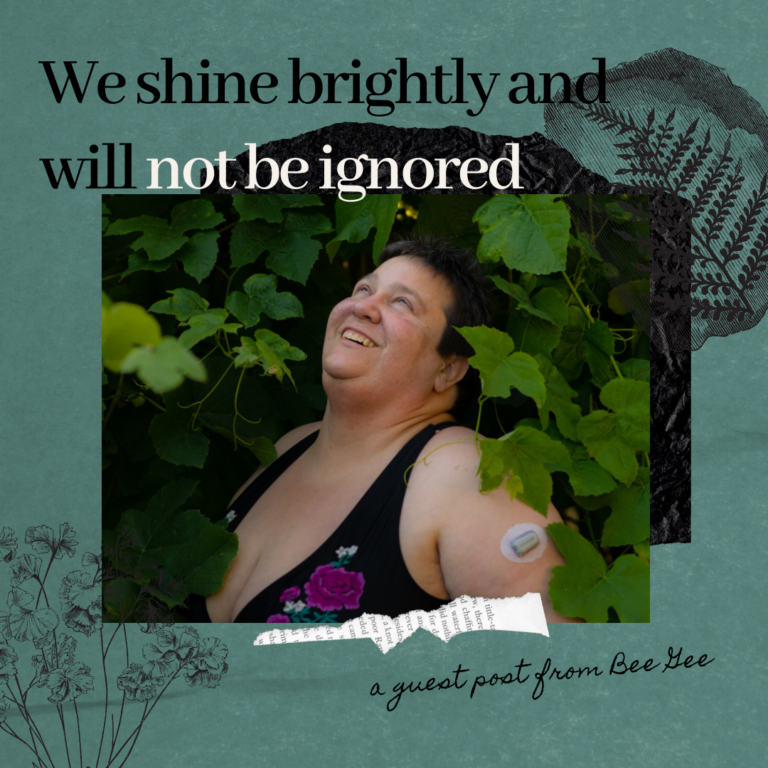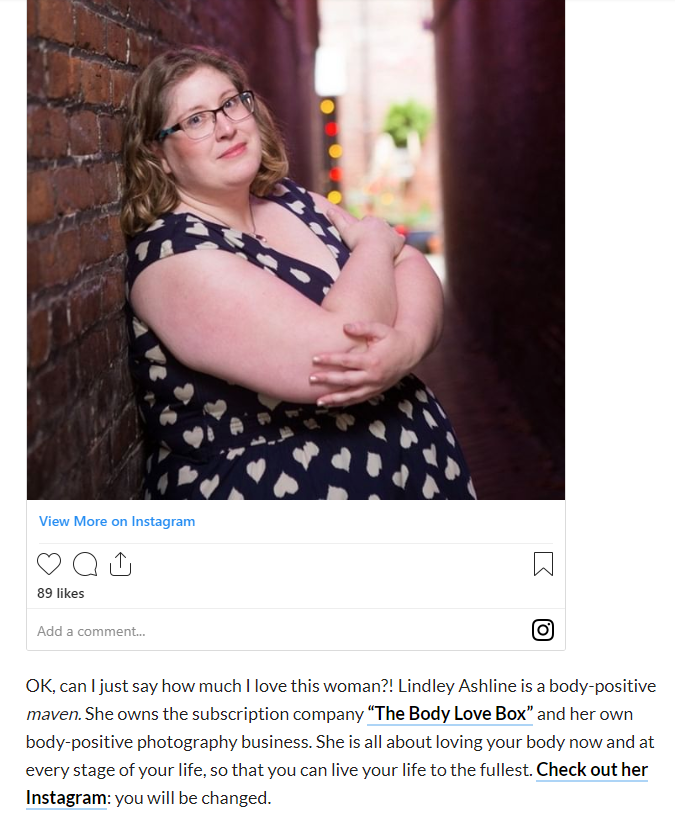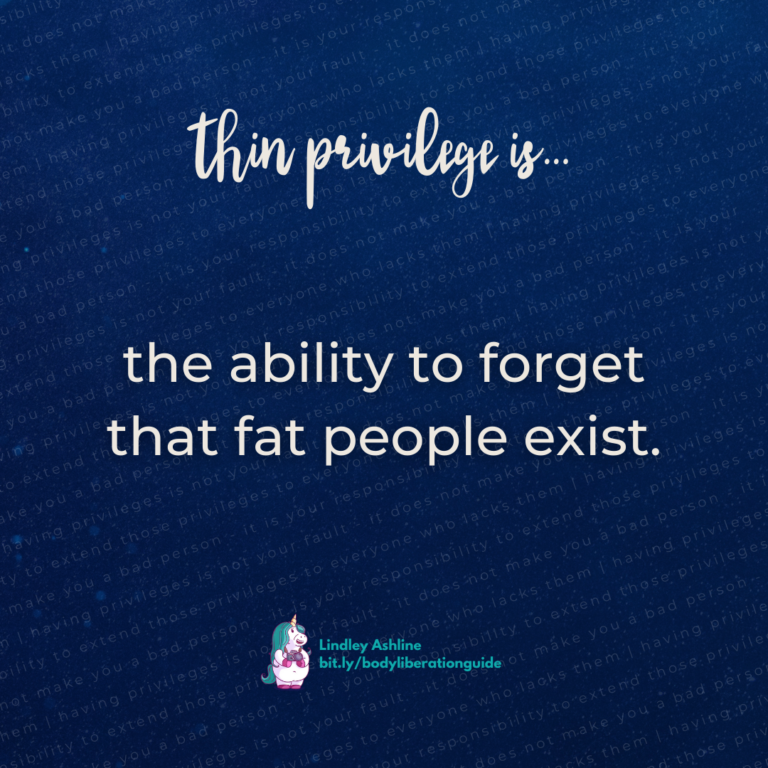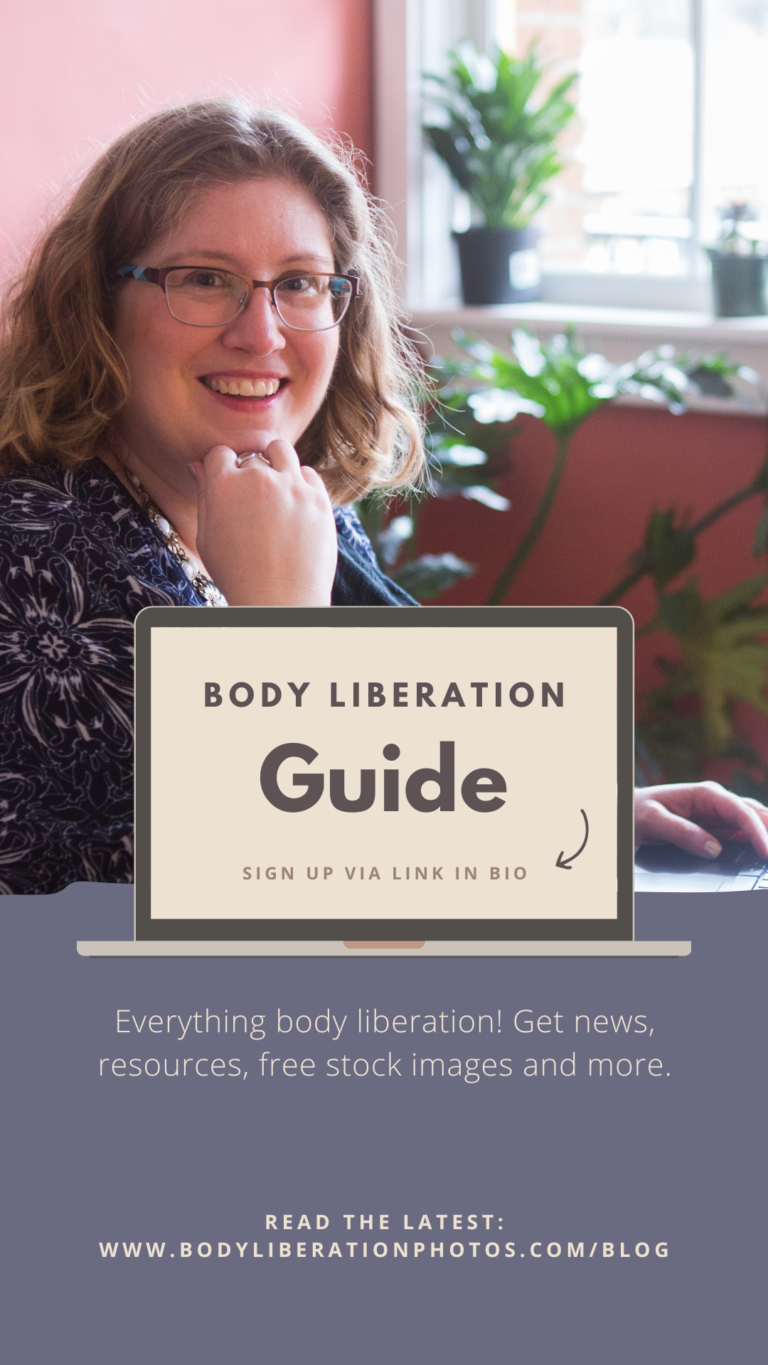Good fat people, healthcare and the edge
One part of interacting with healthcare providers while living in a fat body is that your value and worth as a patient are always, always conditional and based on your perceived compliance.
I’ve been seeing my dentist, who I adore, for many years. My genetic lack of tooth enamel makes me a frequent visitor. In anxious situations, I’m the friendly, reassuring, warm fat woman, laughing and making small jokes and easy small talk, and I’m often rewarded by being treated like a normal human being due to my social overcompensation for my size (as well as my privilege as a white cisgendered woman).
That approach has worked well with the hygienists at my dentist’s office, who all seem like genuinely nice, sweet, caring women. I like them all, and they like me.
And yet, there’s the mouthwash.
In what I assume is a response to COVID-19, when I arrive, I’m now handed a small cup of mouthwash and asked to use it. This has happened three times now.
The first time, I was very taken aback to find that about 15 seconds into swishing, the mouthwash began to burn my mouth. It got worse and worse. I valiantly swished and swished, counting each second, and didn’t quite make the full time before I had to spit it out. I mentioned to the hygienist that it burned, but didn’t make a big deal of it, and we moved along. The second time, I tried harder, with the same level of success.
The third time, I decided to advocate for myself. The hygienist accommodated me easily enough, and even volunteered to go find a mouthwash that had different ingredients, for which I thanked her profusely.
The results were no better.
The edge
The reason that I’m telling you this isn’t because any of the three hygienists were rude to me about it. I want to tell you about the edges.
Each time I am noncompliant about this mouthwash, the hygienist dealing with me has gained an edge — just a touch — of dehumanization. When she says, “That’s strange, no one else has reported that reaction,” I can hear it in the edge of her voice. I can see it, subtle, on her face. I have gone — just around the edges — from being a person to being a large, ungainly, needy, difficult object, making the day a little longer.
These are all good people who would probably never intentionally treat me poorly. In fact, the third hygienist praised me fulsomely, five or six times, during the X-ray process for being so “good” at holding the (also uncomfortable-to-painful) X-ray holder things in my mouth.
But now that the edge is there, what does that mean for me in future visits? Will they be less patient, less understanding? More likely to hurry through my care in a way that puts me at higher risk of mistakes?
Even if the answer is no, I will now feel pressured to appease and fawn even more, to be even more of the best possible fatty, to compensate. And this is a very low-stakes and subtle piece of my healthcare experience. I still love my dentist, no one has done anything wrong, and I will continue to visit this office. My care will probably be just fine.
But the edge is there.
It’s there for every fat person in every healthcare-related encounter — and if it’s not there already, it will appear the moment we advocate a little too strongly for our own humanity and worthiness of proper care, or ask to be treated as well as a thin person presenting with the same symptoms, or appear noncompliant in any way.
It’s important to note here, too, that “compliance” in a healthcare context often means weight loss, which is both viewed as a measure of our commitment to being seen and treated as human and something that is not possible for 90%+ of humans to sustain. Our access to healthcare depends on our willingness to “comply” — to starve ourselves, to eat in disordered ways, to spend our time and money and resources, to put ourselves at risk of eating disorders — so that we can appear worthy for long enough to request and receive treatment.
“People in marginalized bodies are often given advice/strategies on self-advocacy in medical settings. But there’s privilege involved in that. When you’re walking into a medical office in a body that is already viewed as noncompliant, problematic, difficult … you are not always helping your case by speaking up for your own needs. Oftentimes you are confirming the biases your care providers are already predisposed to have about you, therefore compromising your quality of care even further.”
My friend Rosie Young, quoted with permission
Do you have an edge?
I have a thin friend who doesn’t floss. Ever. She sat down with her dentist one day and said, “Look. I’m managing multiple chronic illnesses. My medications take up a significant portion of my day, and they are 100% of what I can manage. I’ll brush, but flossing is just one thing too many, so we might as well all be honest about it and see what else we can do to mitigate it.”
Her dentist was willing to work with her, but I’d like to invite you to examine your own reaction to the previous paragraph.
Does your reaction change when I tell you that that friend is actually a fat person? Did you get a little uncomfortable? Did your jaw clench? Did your nose wrinkle just a tiny bit? Were you initially sympathetic, and now a little less so? What feelings and convictions about fat people just kicked in?
That’s the edge, and your fat relatives and friends and patients and customers and classmates and students and teachers and loved ones can see it.
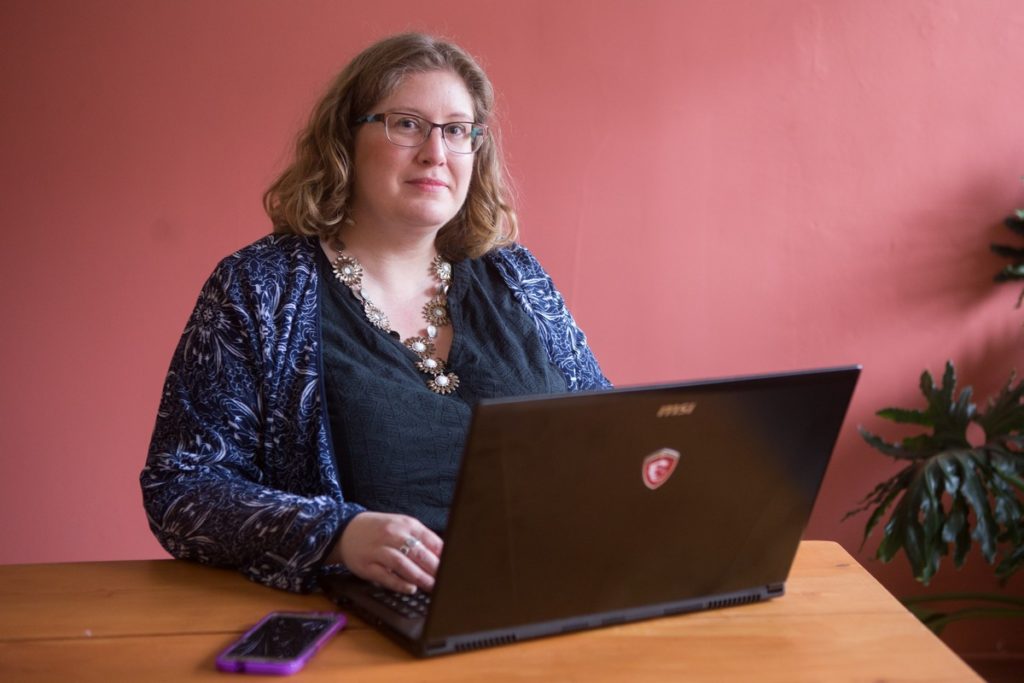
Let’s dig deep. Every Monday, I send out my Body Liberation Guide, a thoughtful email jam-packed with resources for changing the way you see your own body and the bodies you see around you. And it’s free. Let’s change the world together.
Hi there! I'm Lindley. I create artwork that celebrates the unique beauty of bodies that fall outside conventional "beauty" standards at Body Liberation Photography. I'm also the creator of Body Liberation Stock and the Body Love Shop, a curated central resource for body-friendly artwork and products. Find all my work here at bodyliberationphotos.com.



